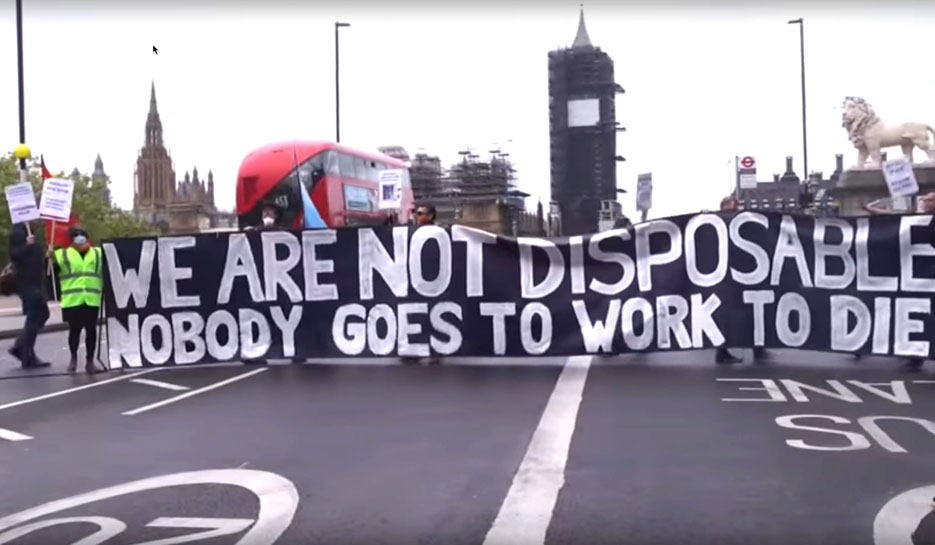THE TORIES have no plan to deal with a second spike of the deadly coronavirus.
A fresh report just released by the Public Accounts Committee (PAC) warns that the ‘Government does not have either a clear understanding of the equipment needed for clinical and care workers, or how to distribute it – particularly in the more fragmented care sector.’
It continues: ‘The Committee is extremely concerned by widely reported shortages of personal protective equipment (PPE) for clinical and care workers during the first wave of the Covid-19 pandemic and says the government is still not treating this with sufficient urgency.
‘It is “absolutely vital” that the same problems do not happen again in the event of a second wave, but uncertainty still prevails around future provision of local PPE across the health and social care sectors.
‘Within two months of this report the Committee expects the Department for Health and Social Care (DHSC) to clarify its governance arrangements and outline when it expects to have a predictable supply of stock and ready access to PPE supply within the NHS and care sectors.
‘This should include detail on the roles and responsibilities for the procurement and distribution of personal protective equipment across NHS and social care settings.
‘The NHS is now attempting to clear the extensive backlog of screening and treatment that developed during the first wave, and return to more routine and planned services again, against the backdrop of a range of pre-crisis performance measures it was struggling to meet.’
The Committee says the NHS now needs a coherent plan for how it will function after the peak of the Covid-19 crisis.
‘The crisis cannot be used as an excuse not to address long-standing issues, highlighted in previous PAC reports, such as workforce shortages, coherent and aligned capital investment strategies, and tackling trust deficits.
‘As part of the preparation for Covid-19 “to protect the NHS and save lives” the government provided significant additional funding to the NHS, including writing off £13.4bn of loans.
‘But this and funding for specific staffing and other support do not address the underlying issues of the NHS financial sustainability the PAC has been highlighting for years – alongside reports on the increasingly poor performance against waiting times standards for A&E and cancer, and on the growing waiting lists for elective treatments.
‘In 2018-19 all NHS trusts in England were together running a combined net deficit of £827 million.
‘Within patient services, performance against the 18-weeks waiting times standard in 2018-19 was at its worst since 2009-10, and the number of people on the waiting list had increased to an historical high of 4.23 million at the end of March 2019.
‘At October 2019, trusts reported an estimated total backlog maintenance cost to restore their estate to an appropriate standard of £6.5 billion, of which £1.1 billion was high-risk: disrepair that poses an increased risk of harm to patients . . .
‘There is a similar long-term failure to publish a “people plan”, and continued lack of long-term investment in people and training to address the 40,000 nursing vacancies and 9,000 vacancies for medical staff in the NHS.’
